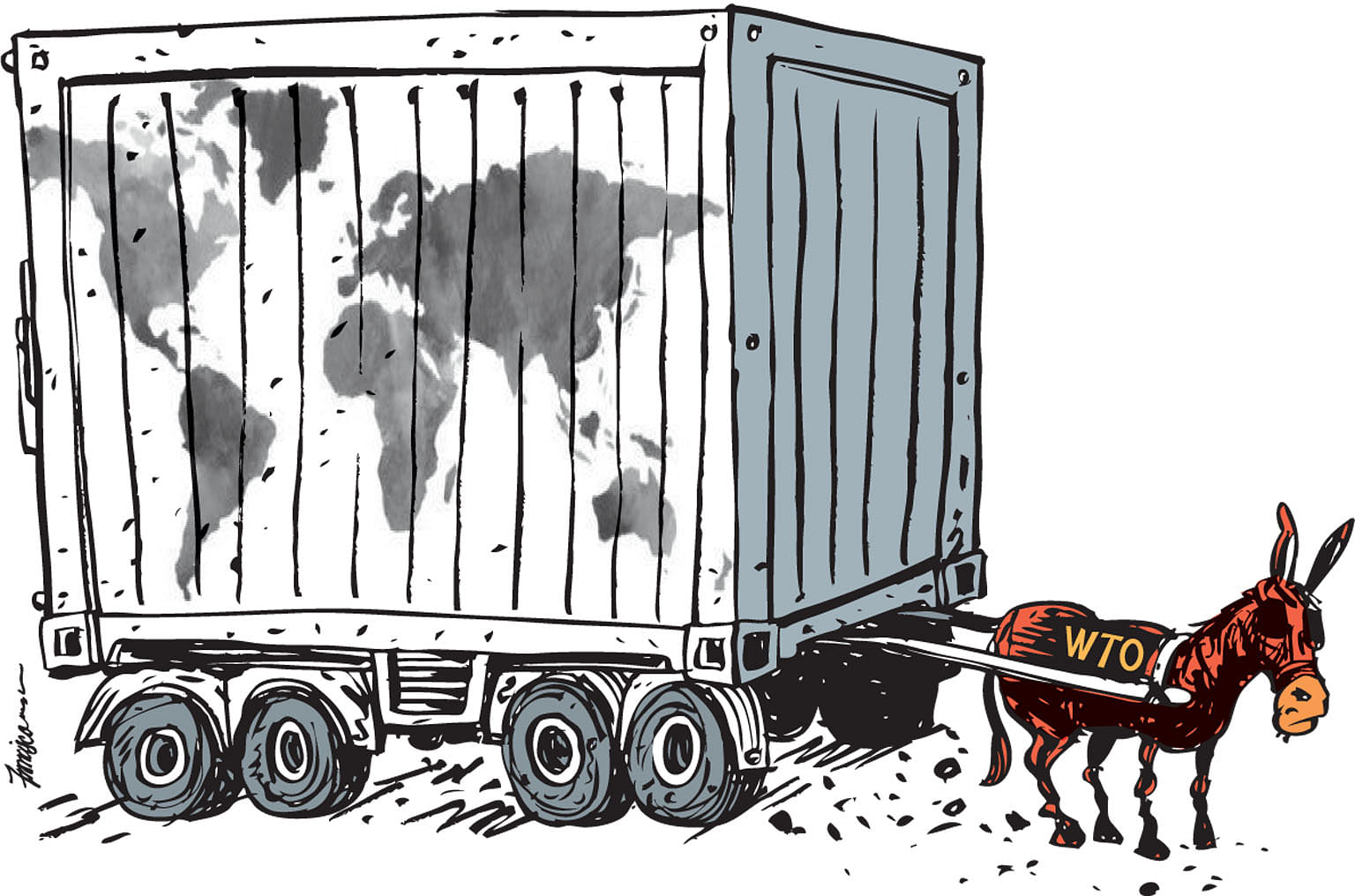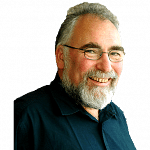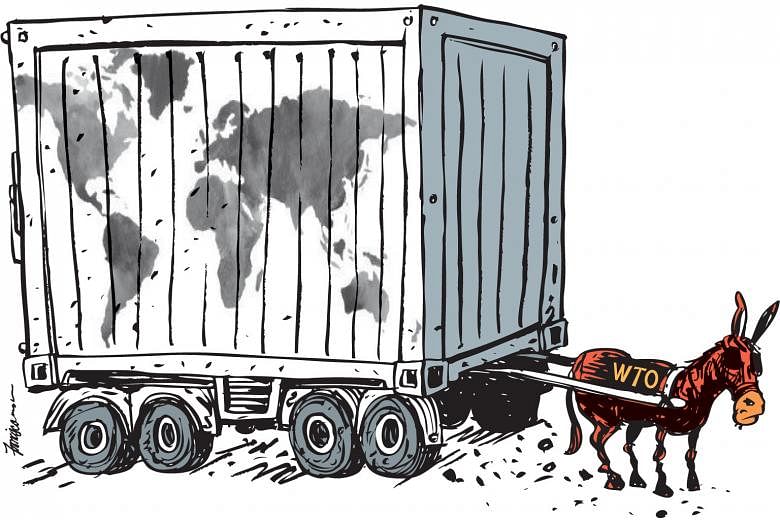The Gatt (General Agreement on Tariffs and Trade) would have marked its 70th anniversary last month, on Oct 30.
Initially set up as a temporary institution, the Gatt oversaw the successful completion of seven rounds of trade-liberalising negotiations. The last was the Uruguay Round, from 1986 to 1994, following which, on Jan 1, 1995, the World Trade Organisation (WTO) was set up. Next month, from Dec 11 to 14, the WTO's Eleventh Ministerial Conference (MC11) will be held in Buenos Aires, Argentina.
The Gatt was arguably the most successful institution established in the second half of the 20th century, in the wake of World War II. It brought peace and prosperity to its Western members and Japan, and allowed Asian export-oriented developing economies, such as Singapore and South Korea, to achieve awesome growth, resulting in their metamorphosis from "Third World" to "First World".
In 1967, Singapore's gross domestic product (GDP) per capita was US$2,200; it joined the Gatt in 1973 and by 2002, after 35 years of average annual growth of 7 per cent or more, it expanded more than tenfold to US$25,400. From the initial 23 signatory state members in 1947, membership increased to 128 by the end of the Uruguay Round.
When the MC11 is held in Buenos Aires, the WTO will be in its 22nd year. It has not seen the successful conclusion of a single trade-liberalising round. The Doha Round, launched amid much fanfare in 2001 and expected to be completed in five years, is effectively - even if not officially - dead.
Whereas the Gatt was a purely negotiating body, the WTO has both negotiating and judicial functions. Whereas, with the death of Doha, the negotiating function is moribund, the judicial function - the Dispute Settlement Unit - seemed solid. Now, however, United States President Donald Trump seems intent on killing both: See Shawn Donnan's "Happy birthday Gatt. Have you met Donald Trump?" in the Financial Times on Oct 31.
The multilateral rules-based trading system that so greatly benefited the 20th century is failing the 21st. Attempted alternatives, for example the "mega-regionals", such as TPP (Trans-Pacific Partnership) and TTIP (Transatlantic Trade and Investment Partnership), have not been successful.

The current global trading system might therefore be described as one of more-or-less managed chaos. Certainly, it is very fragile.
How did this happen? As with all historical events, there are multiple causes. Here I will limit myself to one, though, I would argue, it is the most important.
Throughout much of history, the Eurasian continent was multipolar with different societies engaging in trade, occasionally war. Share of global wealth was closely correlated to the size of population. Thus, in 1600, for example, Asia's share of GDP was about 65 per cent, as was its share of world population. Europe's was some 20 per cent of both - population and GDP.
In the ensuing centuries, especially from the 19th, these ratios changed dramatically and indeed were reversed. In 1820, Asia's share of global GDP still stood at 60 per cent; by 1913, on the eve of World War I, it had dwindled to 25 per cent, and by 1950, to less than 20 per cent, though Asia's share of global population continued at over 60 per cent.
Europe's dominance of the world arose out of a combination of industrialism, imperialism and trade. Sven Beckert has written a fantastic book entitled Empire Of Cotton: A Global History (2015) in which he demonstrates how cotton, combining all three - industrialism, imperialism and trade (including the slave trade) - contributed significantly to the rise of the West and the subjugation of the other continents: Asia, Africa and America.
Charles Emmerson, in his book 1913: The Year Before The Great War (2013), describes how "a European could survey the world in 1913 as the Greek gods might have surveyed it from the snowy heights of Mount Olympus: themselves above, the teeming earth below".
This dominance of the world, however, resulted in not only the exploitation and impoverishment of the non-Western continents, but also in intense rivalry between the Western imperialist powers - which in the late 19th century were joined by Japan. This was especially true when industrialism, imperialism and trade were immersed in nationalism. In August 1914, Europe plunged into barbaric mayhem that lasted over three decades.
So much for "Western values".
The post-World War II settlements, including reform and institutional innovation, had everything to do with resolving conflicts among the Western powers and virtually nothing to do with righting the wrongs committed against the non-Western continents.
In stark contrast to the first half of the 20th century, the second half for the Western world was arguably the best enjoyed by any society, at any time, anywhere. By 1975, the First World, composed of Western Europe, the US, Canada, Australia, New Zealand and Japan, accounted for over 60 per cent of world GDP and less than 25 per cent of world population. By the end of the century, while its share of world populations had significantly diminished, its share of global GDP remained roughly the same.
Thus, the First World sought to ensure that the global economic institutional edifice being erected after World War II should remain its preserve. The heads of the World Bank should be American, the heads of the International Monetary Fund, European. There was no such stricture with respect to the Gatt/WTO. However, until the retirement of Frenchman Pascal Lamy in 2013, when he was succeeded by Brazilian Roberto Azevedo, the only non-First World person who held the position was Thai Supachai Panitchpakdi (from 2002 to 2005).
Furthermore, while theoretically each national vote at the Gatt/WTO carries equal weight, effectively the "Quad" - the US, Canada, European Union and Japan - called the shots.
DEMAND FOR CHANGE
In the light of the profound transformations and market reforms undertaken in the erstwhile Third World at the turn of the century, increasingly "emerging nations" felt they should have a place at the WTO table and that their voices should be heard so that the playing field should be less tilted against them.
After the launch of the Doha Round - officially the Doha "Development" Agenda - in 2001, and the WTO Ministerial Conference that was held in 2003 (MC5) in Cancun, Mexico, when it soon became clear that these emerging nations were seen to be becoming "uppity" and that things were not going in the direction favoured by the Quad, the Mexican chairman Luis Ernesto Derbez was prevailed upon to annul the conference. This occurred on Sept 14, 2003 and effectively marks the day the Doha Round died.
Though ministerial conferences continue to be held, recently in Bali in 2013 and in Nairobi in 2015, and there have been some marginal results, the Doha Development Agenda is no longer on the global trade agenda. The WTO no longer holds centre stage; it is at best, a sideshow.
Its relevance is likely to decrease, not increase. Mr Trump may well give it its coup de grace.
GLOBAL TRADE CONFLICT?
At a time when global trade has become increasingly complex, yet also increasingly prevalent, it is abundantly clear that new institutions are needed that will reflect the realities of the 21st century. As things currently stand, however, especially in the light of the American presidential administration, this would seem to be very wishful thinking. Perhaps a major global trade conflict might be necessary for new solid 21st century institutions to be established. The good news is that a major global trade conflict will probably occur soon. This is also the bad news.
In the meantime, do not expect anything coming out of MC11. If you have to be in Buenos Aires, I strongly recommend that you spend your time at the Cafe Tortoni, 825 de l'Avenida de Mayo; founded in 1858, it is Buenos Aires' oldest cafe and one of the birthplaces of the tango. Argentina, of course, is also the land of Juan Peron (1895-1974), the populist Argentine politician and president who founded the highly protectionist movement "peronismo". Peronismo had a long lasting effect on Argentine politics. Most elected presidents have been Peronists, including Hector Campora, Isabel Peron, Carlos Menem, Eduardo Duhalde, Nestor Kirchner and, most recently, Cristina Fernandez de Kirchner (2007-2015).
Though the competition is very tough, it would not be difficult to argue that throughout the 20th century, Argentina has been one of the world's most protectionist countries.
It is a cruel irony that since 2015, Argentina has had its most pro-trade president ever, Mr Mauricio Macri. His position was further bolstered by the recent mid-term parliamentary elections. Thus, with President Macri, Argentina may be joining the 21st century global market, precisely at a time when the global market institution is failing.
- The writer is emeritus professor of international political economy at IMD business school, with campuses in Lausanne and Singapore, and a visiting professor at Hong Kong University.


